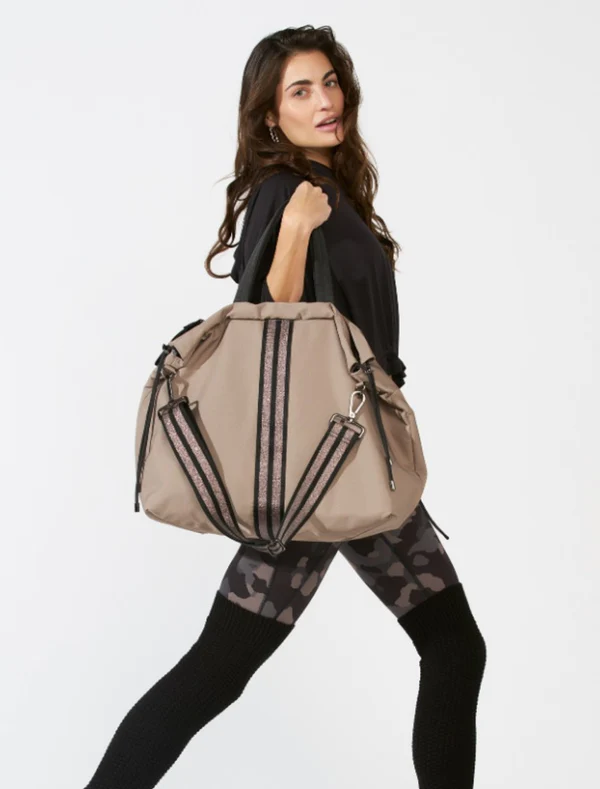The TikTok trend "Underconsumption Core" is a mindset that should guide everybody through the deal-heavy month of Black Friday and Cyber Monday.
The TikTok trend "Underconsumption Core" is a mindset that should guide everybody through the deal-heavy month of Black Friday and Cyber Monday.
The problem: a season of excess
Every November, countdown timers blink and inboxes overflow with “last chance” offers and limited-time discounts. What was once a single weekend of sales has morphed into Deals Month – a sprawling performance of “buy now.”
In 2024, U.S. consumers spent $10.8 billion on Black Friday and $13.3 billion on Cyber Monday. [1] Globally, Cyber Week reached $315 billion in sales, a 6% increase from the previous year. [2] These numbers speak of abundance and of exhaustion. More ads, more waste, more pressure to consume. The world now thinks, breathes, and buys in the language of “more.”
Yet, amid the chaos of modern-day consumption, a quieter current is gaining strength, a reminder that less can be more. It’s trending under a simple but powerful hashtag: #UnderconsumptionCore.
The movement: minimalism reimagined
Coined on TikTok, Underconsumption Core is a modern reinterpretation of minimalism – an aesthetic of sufficiency rather than austerity. It has gathered hundreds of millions of views across the platform.
Videos show quiet acts: mending a shirt, growing your own vegetables, cooking with simple ingredients. Each is an antidote to overconsumption, and an invitation to slow down, to remember that happiness and satisfaction were never meant to be algorithmic.
According to Omar H. Fares, lecturer in consumer behavior at Toronto Metropolitan University, [3] two forces drive this trend: economic instability and environmental awareness.
“Younger generations are facing immense financial stress while becoming more climate-conscious. This awareness is shifting aspiration away from excess,” he explains.
Such dual pressure – personal and planetary – has made consumerism not just a financial question, but a moral and emotional one.

The practice: 5 steps to live the art of underconsumption
Follow these simple actions to turn Underconsumption Core from a trend you scroll past into a lifestyle you stand by – a mindful rhythm that slows the cycle of want and waste.
-
Pause before you buy.
Try the 48-hour rule: if the desire lasts three days, it’s genuine. Impulse rarely survives that long. -
Shop your own closet.
Rediscover the pieces you loved before algorithms shifted your preferences. -
Repair as ritual.
A patch, a polish, a stitch: small acts of care that resist disposability.
-
Make circularity your style.
Swap, rent, borrow, or thrift. What’s old to someone else can be new to you and gentler on the planet. -
Ask yourself why.
If the reason is boredom, step outside. The world is free to explore. -
Try digital decluttering.
Unfollow what fuels comparison, delete what drains you, and curate a calmer social media space that mirrors your values offline.

The future: the luxury of less
Even institutions are taking note. The UN Environment Programme [4] referenced Underconsumption Core trend in its official Black Friday communications, recognizing it as part of a wider cultural shift. Its Sustainable Fashion Communication Playbook calls for ending the glorification of overconsumption and embracing narratives that value durability and moderation – precisely what creators are modeling online.
What lies ahead may remain uncertain, but this much is clear: it is being rewritten not only by regulations and international standards, but by the trends and echo chambers pulsing through social media. These are no longer just platforms – they are the forges where information, values, and aspirations are imprinted on generations to come.
As Deals Month returns, awareness might simply mean pausing the scroll, closing the tabs, silencing the ads, and realizing that what we already have is, in many ways, enough.
A sneak peek at our next article
A heatwave, a flooded street, a failed harvest — climate change touches everyone, but not in the same way. In our next article, Climate Change and Inequality: Why the Impact Isn’t the Same for Everyone?, we uncover how global warming magnifies existing social and economic divides, and why climate justice must be at the heart of any sustainable future.
[2] Salesforce. (2024, December 4). Sales data reveals new Cyber Week all-time high: $314.9B in global sales. https://www.salesforce.com/news/press-releases/2024/12/04/cyber-week-ai-sales/
[3] Chan, E. (2024, August 24). What, exactly, does Underconsumption Core mean? British Vogue. https://www.vogue.co.uk/article/underconsumption-core
[4] UNEP. (2024, November 29). As Black Friday looms, some in the fashion industry take aim at overconsumption. https://www.unep.org/news-and-stories/story/black-friday-looms-some-fashion-industry-take-aim-overconsumption
From ECONYL® Blog
The uneven storm: why climate change doesn’t break on every shore the same way
Read more
Pre-consumer Material
Pre-consumer (also called post-industrial) material is waste diverted from the manufacturing process before the product is completed.
The Art of Underconsumption: embracing minimalism during “deals month”
Read more
Join a newsletter that inspires change
Step into the loop and unlock thoughtful insights, inspirations, and stories that connect.
Join now!Let your choices reflect your values.
Sale & offers
Exclusive perks and early private access.

The Club
